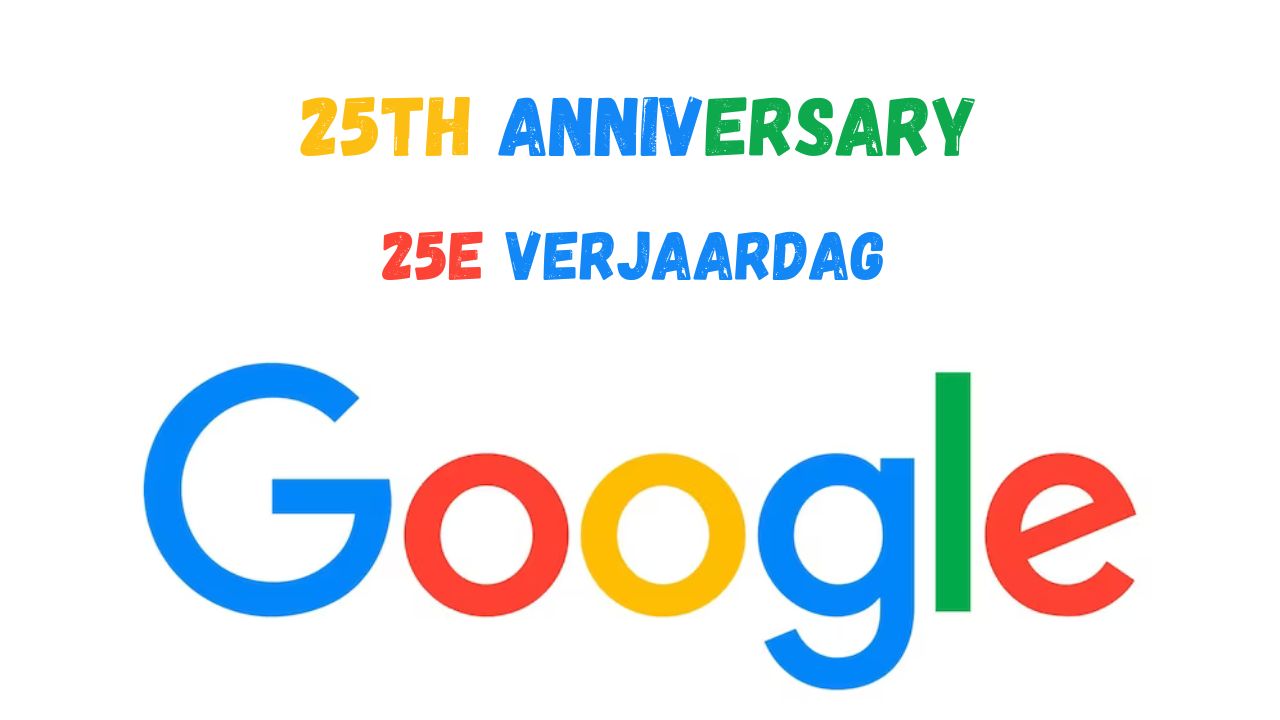As we commemorate Google’s 25th anniversary, welcome on a historical tour! Google has come a long way from its modest garage start to completely changing how we search the internet. Let us delve into the vibrant past of this tech behemoth and examine how it has affected our lives for the last 25 years.
Google’s logo and interface evolution
Google’s logo has changed dramatically over the last 25 years to represent the company’s expansion and inventiveness. Google has always worked to remain current, from its straightforward 1998 design to the vibrant and playful logo we see today.
Additionally noteworthy have been the major improvements made to Google’s interface, which emphasize accessibility and user experience. Users may easily move between search results and other services thanks to the simple and elegant design.
With every update, Google strives to improve usability without sacrificing functionality or speed. Their dedication to remaining one step ahead in the always-evolving digital market is demonstrated by the launch of tools like voice search and customized suggestions.
Setting new benchmarks for style and usability in the computer sector, Google’s logo and interface are always changing with the times.
Significant anniversaries in Google history
Important turning points along the road have influenced the way we access information online and defined Google. Google’s founding on September 4, 1998, by Larry Page and Sergey Brin while they were Ph.D. candidates, is one of its most significant turning points.
D. graduate students at Stanford University.
At over a billion searches a day in 2000, Google overtook as the biggest search engine in the world. AdWords’ 2000 debut transformed online advertising by enabling companies to target their adverts according to keywords.
When Gmail was launched in 2004, its ground-breaking features—like threaded chats and a huge storage capacity—changed the email scene. Introduced in 2005, Google Maps provides comprehensive maps and satellite photos of places all around the world.
Expanding its reach into video content sharing, Google paid $1.65 billion to acquire YouTube in 2006. Google’s hegemony in mobile technology with millions of users worldwide was made possible with the 2008 release of Android OS.
Effect on the software and internet sectors
Google has had nothing less than a revolutionary influence on the Internet and technology sectors for the last 25 years. From creating ground-breaking products and services to completely changing search engines, Google has changed the way we access information online.
Google Maps transformed our ability to get around the globe, and Gmail transformed email correspondence. As it grew to dominate the web surfing market, Google Chrome established new benchmarks for usability and speed. With the purchase of YouTube, Google’s clout in digital content was cemented even more.
Google is dedicated to invention even outside of its main offerings. Self-driving car business Waymo and artificial intelligence company DeepMind are examples of how committed the company is to pushing limits and discovering new technological frontiers.
Google’s influence on the internet and technology sector will only increase as long as it leads the way in building our digital environment.
Groups and issues Google faces
Notwithstanding its enormous popularity and impact, Google has not been without its share of problems and scandals over time. Concerns about user data collecting and storage methods were one of the main problems Google encountered. The amount of personal data Google was collecting through its several services alarmed critics.
Antitrust probes by national regulatory agencies presented Google with another difficulty. Claims against Google of unfair competitive practices and monopolistic behavior resulted in court suits and, in certain instances, large fines.
The proliferation of bogus news on Google’s services also become a serious issue. Reaction to the search engine’s promotion of inaccurate or misleading information in search results damaged public confidence in the platform’s legitimacy.
Further accusations of bias in search algorithms emerged, stating that Google preferred some websites or points of view over others. This stoked discussions over the impartiality and openness of search result ranking and presentation.
Google’s plans: what comes next?
Many are wondering what lies next for this tech behemoth as it marks its 25th birthday. Given its history of invention and upheaval, Google should keep pushing the envelope in several industries.
Artificial intelligence is one area that Google intends to concentrate on. Using machine learning and artificial intelligence, Google seeks to improve user experiences across all of its offerings. Personalized recommendations and more effective search engines are just two examples of how AI will influence Google’s future.
High on Google’s agenda is sustainability as well. The business has committed to invest in renewable energy sources and lessen its carbon footprint. Aiming to be a responsible corporate citizen, Google should launch more environmentally beneficial projects.
Besides, Google is probably going to increase its presence in the fields of augmented reality (AR) and virtual reality (VR). The firm has already dabbled with immersive technologies with initiatives like Daydream and Google Cardboard. Google is going to release many more cutting-edge VR/AR experiences in the next few years.
For as long as Google keeps innovating and reshaping the digital scene, the future seems promising. Watch this space for fascinating next developments!
Reflecting on Google’s influence and achievement over the past 25 years
It is hard to not be amazed by the path this tech behemoth has taken as we commemorate its 25th anniversary. Google has genuinely transformed the way we access information online, starting in a garage and rising to become a household name in internet search.
Over time, both design trends and technical breakthroughs have been reflected in the evolution of Google’s logo and interface. Launching Gmail, Android, and Chrome, among other significant turning points in Google’s history, has influenced how we communicate and use technology now.
One cannot stress how much Google has changed the internet and technology sectors. It has enabled unprecedented levels of knowledge sharing, linked billions of people globally, and stimulated innovation in a wide range of industries.
Much like any large company, Google has had difficulties and conflicts along the road. Maintaining its goal of organizing the world’s knowledge while negotiating these challenges—which range from privacy concerns to antitrust investigations—is no simple task.
Google keeps pushing limits going forward with programs in artificial intelligence and self-driving cars through Waymo. This massive IT company has countless opportunities in the future as it works to remain at the forefront of innovation.
Thinking back on 25 years of Google’s growth and impact serves as a reminder that every search query has a unique, tenacious, and ground-breaking technological tale that has permanently altered our world. Cheers to 25 more years of influencing the digital scene!











